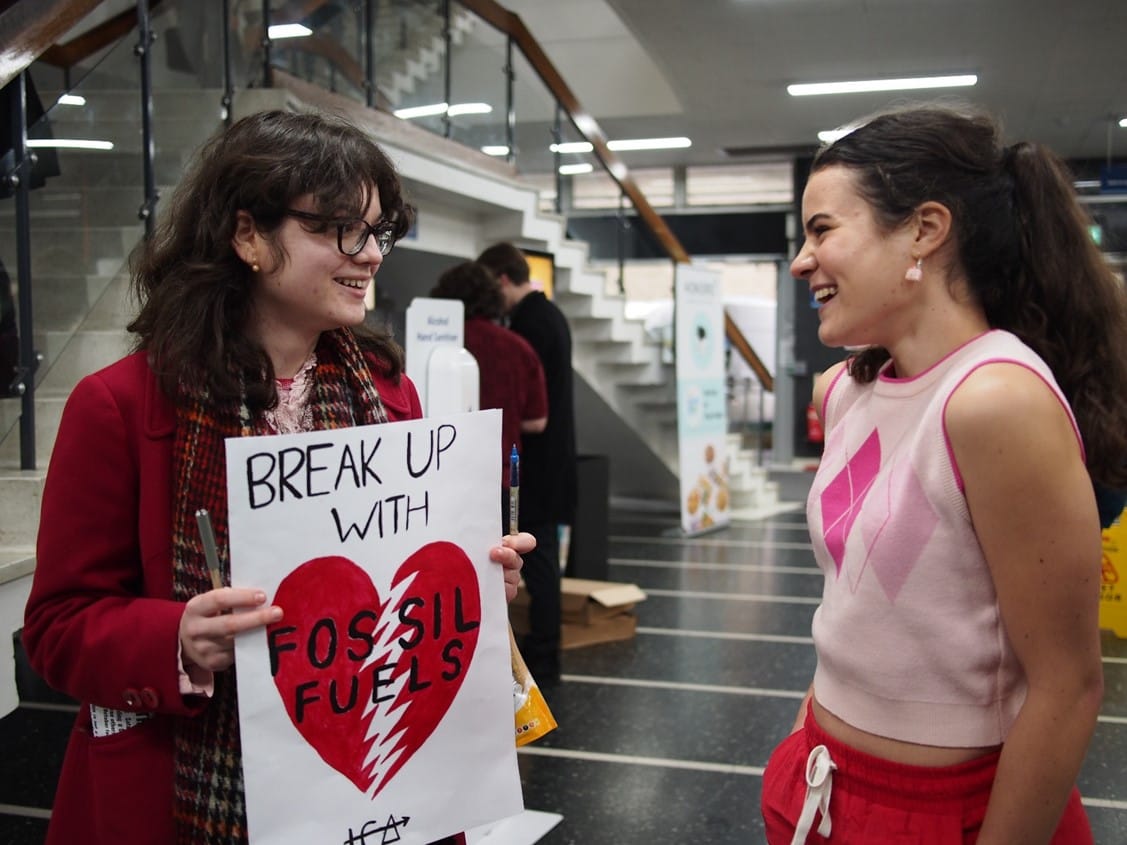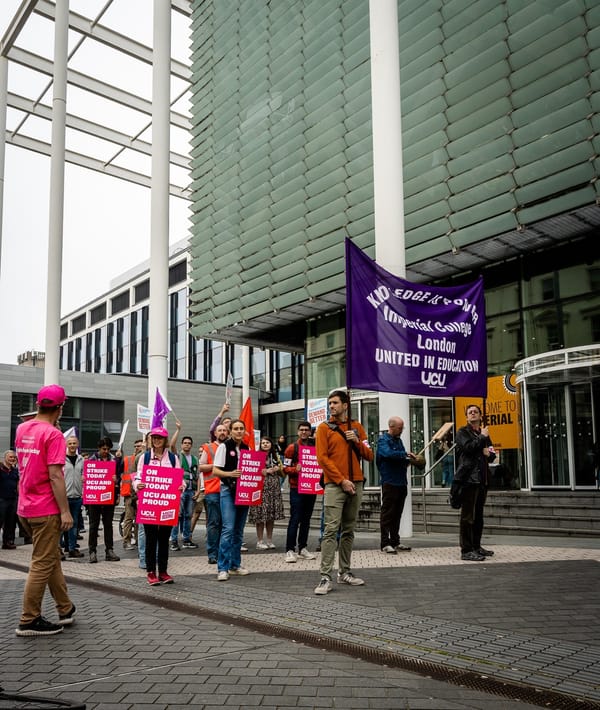Top scientists urge Imperial to end fossil fuel investment
Former advisor to UK Prime Minister joins top Imperial scientists urging policy change.

Leading scientists including a former Government Chief Scientific Advisor (GCSA) and the co-director of Imperial’s climate research institute have joined students and alumni in calling for Imperial to divest from fossil fuel companies.
The university’s £555m endowment does not currently hold stakes in any fossil fuel companies.
However its investment policy has come under fire because it does not preclude such holdings.
Activist group Imperial Climate Action (ICA) has penned an open letter attacking the policy, under which Imperial says it will continue investing in businesses that ‘demonstrate movement’ towards the climate targets set out in the 2015 Paris Agreement.
Senior staff at Imperial’s Grantham Institute on climate change, including Co-Director Ralf Toumi, and Director of Research Joeri Rogelj, are among scientists at the College who have signed.
The letter, which ICA claims has the signatures of 396 Imperial employees, has been published ahead of a College working group meeting this Friday to discuss divestment.
Professor Sir David King, an alumnus who served from 2000 to 2008 as GCSA – the personal scientific advisor to the UK Prime Minister and Cabinet – urged Imperial to divest from companies ‘still investing in new oil and gas discovery.
‘As many economists point out, this will not only worsen our chances of a manageable future for humanity, it will also prove to be a stranded economic asset.’
Dr Neil Jennings, Partnership Development Manager at the Grantham Institute, and a signatory of the letter, said: ‘Warm words from fossil fuel companies have not been backed-up by meaningful deeds.’
‘It's good that the current College endowment doesn't include investments in fossil fuel companies, but I'd like to see this formally reflected in the investment policy.’

Imperial has holdings in a range of companies through its endowment, a portfolio of assets that generates income to support the College’s work.
Until recently, it owned indirect holdings in hydrocarbon exploration firm EOG Resources, and Berkshire Hathaway – which itself has billion-dollar stakes in fossil fuel companies such as Chevron and Occidental Petroleum.
Quarterly reports from the College reveal that EOG and Berkshire were removed from Imperial’s holdings between October 2023 and January 2024.
Since 2020, the university’s investments have been governed by its Socially Responsible Investment (SRI) policy, which aims to ensure that the endowment is consist with Imperial’s mission.
Under the SRI policy, Imperial says it will continue to invest in fossil fuel companies that demonstrate movement towards meeting Paris Agreement targets. The university argues that engaging with such companies allows it to proactively exert influence in a way that divestment would not.
ICA’s open letter attacks the SRI policy’s approach of engagement, claiming it gives fossil fuel companies ‘credibility’ and ‘a licence to continue their operations with limited scrutiny.’
It calls on Imperial to ‘update and extend its current investment policy to publicly exclude all fossil fuel companies within the next 12 months.’
Separately, ICA also poured scorn on the Imperial Zero Index, a framework announced in February to determine engagement with energy and fossil fuel companies.
Imperial said it would ‘disengage from academic and research collaborations with companies that score poorly against [the index’s] criterias’, adding that the framework would also inform its investments.
‘We don’t require yet another index to comprehend this; we need full divestment from fossil fuels,’ said Ioana Balabasciuc, ICA’s divestment campaign leader.
Harvard professor and Imperial alumna Naomi Oreskes added to the calls for a divestment policy, saying that as ‘a leader in science, technology, and engineering’, Imperial ‘should have been at the forefront of the divestment movement’.
Oreskes co-authored the book Merchants of Doubt, on how contrarian scientists obfuscated the dangers of smoking and climate change.
Editor's note
Professor Ralf Toumi wished to add that his view is that ‘sending a positive investment message rather than just divestment is important.’








